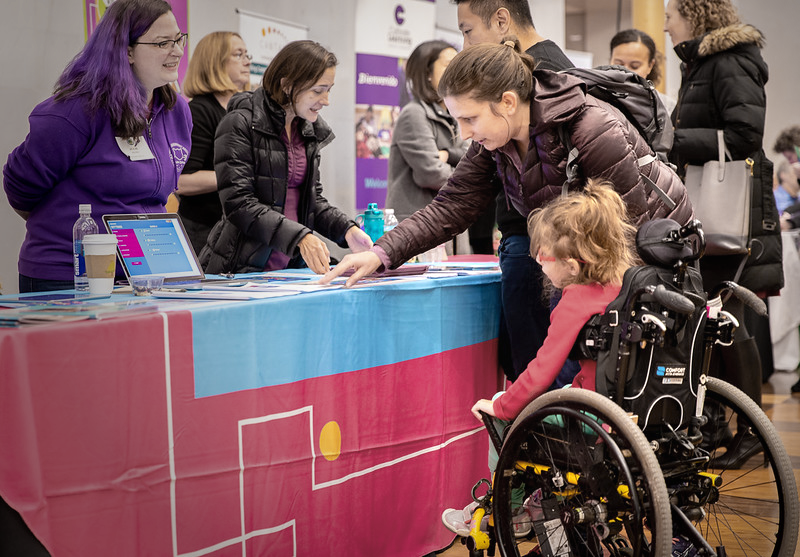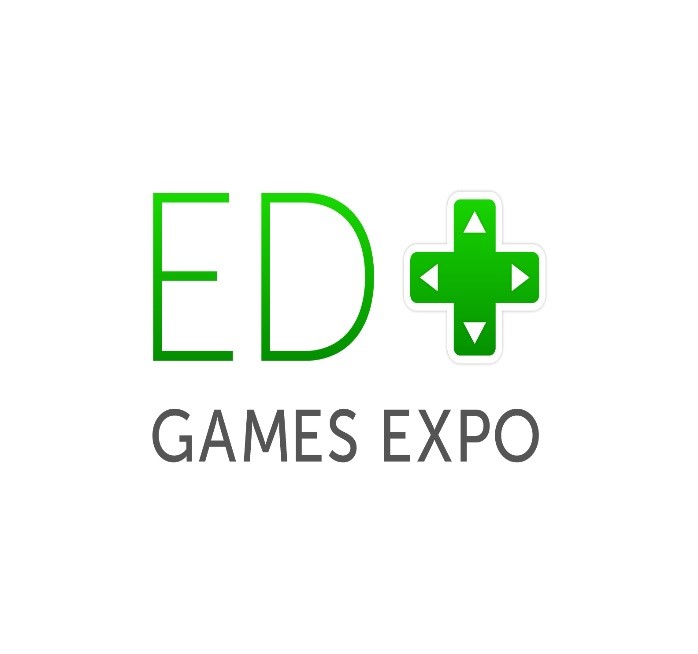By Kristen Kushiyama
Public Affairs Specialist, OSERS, U.S. Department of Education
The U.S. Department of Education held the seventh annual ED Games Expo at the John F. Kennedy Center for the Performing Arts in Washington, Jan. 9.
“The ED Games Expo is the department’s annual public showcase and celebration of educational learning games as well as innovative forms of learning technologies for children and students in education and special education,” according to the ED Games Expo site.
The expo had almost 150 learning and technology games that covered topics such as early learning, science, engineering, making, math, reading, social studies, English learning and social skills for all students — including students with disabilities.
The Office of Special Education Programs (OSEP) within the department’s Office of Special Education and Rehabilitative Services (OSERS) organized the expo’s Showcase on Innovation in Special Education, which included remarks from OSEP Director Laurie VanderPloeg and OSEP Research to Practice Division Director Larry Wexler and a keynote address from Christopher Patnoe, head of Google Accessibility Programs.
The session also included “Big Idea” talks, which were short presentations from those who work in or with the field of technology and games for people with disabilities. These presenters ranged from OSEP grant recipients to university staff to venture capitalists.
“I see this as a collective, collaborative opportunity… to meet the needs of our students and early learners across the nation,” VanderPloeg said.

OSERS Office of Special Education Programs Director Laurie VanderPloeg presenting opening remarks.
After the daytime sessions geared towards professionals, the expo opened to students. Students had the opportunity to play with the games and meet the innovators behind the games.
Demonstrations from current and former OSEP grant recipients, that may have also received additional funding from other federal agencies, included:
- NumberShire, a math game focusing on critical whole number concepts and skills that uses a narrative arc to motivate and teach students in kindergarten through second grade, especially those at risk for mathematical difficulties. (Video Demo)
- KinderTEK, which engages young learners in differentiated kindergarten-level math instruction by using an iPad app with illustrated animals all over the world. The apps offer individualized instruction, feedback, and assessment in Common Core for teachers working with students with identified math learning disabilities that will result in enhanced instruction to better serve early elementary students with learning disabilities. (Video Demo)
- Strategies for Online Academic Reading (SOAR) Toolkit, a web-based curriculum that supports students with learning disabilities in middle school to search for, find, evaluate, read and utilize appropriate and relevant information when reading and researching online. The SOAR Strategies are aligned with the Common Core State Standards and designed to promote student competency when reading and researching online. (Video Demo)
- Future Quest Island-Explorations, an online, accessible college and career awareness curriculum that uses gaming motivation to support improved self-concept, social and emotional competence, and early college and career awareness for upper elementary students with and without disability in third through fifth grades through the evidenced-based “Possible Selves” framework. (Video Demo)
- The Center for Improving Software for Learning (CISL), an OSEP investment that is developing a suite of tools to adapt and customize instruction for students with disabilities. The tools will include a reader called Clusive, an authoring tool and a discovery tool. When fully developed, the Clusive reader will include both accessibility and adaptive features so that instruction can be differentiated to meet the needs of individual students.
- Implementing Behavior Supports and Team Technology (ibestt), a web-based technology for school and district-level teams using a multi-tiered systems of support framework to implement behavior supports in the elementary and middle school classrooms for students with chronic challenging behaviors. The tool facilitates communication and collaboration of MTSS Tier 3 teams and provides ongoing coaching for teachers implementing behavior supports in the classroom. (Video Overview)
- Bridge Multimedia, whose products address a range of disabilities and are grounded in principles of child development and learning. They demoed Railway Hero, which was developed through a partnership with WNET Thirteen and is a free online game for elementary students to learn and practice addition in an engaging, multi-level adventure with the characters from the PBS Kids series, Cyberchase. Bridge Multimedia also demoed the Career-Centered Social Skills and Active Listening (C-CAL) app, a game-based, accessible, interactive assessment tool and training program that provides scenarios that emphasize the importance of active listening to better develop social skills in the workplace for students with disabilities transitioning into the work environment.
- SNUDLE, a web-based version of traditional science notebooks enhanced through Universal Design for Learning supports and intended to facilitate students’ application of inquiry science.
- Project Etext Supports for Collaborative Online Learning and Academic Reading (ESCOLAR), which aims to offer all middle-school students, including students with specific learning disabilities, the opportunity to learn science within an engaging online environment. (Video Demo)
- Writing Efficiently with Graphic Organizers — Responsive Instruction while Implementing Technology Effectively (WEGO-RIITE), which offers a technology-based graphic organizer with embedded evidence-based strategies, video models, Universal Design for Learning supports and opportunities for data-driven decision making to support both general and special education teachers in effort to improve essay writing for students in fourth through sixth grades with and without high-incidence disabilities (e.g., learning disabilities, emotional disturbance) struggling with writing.
Demonstrations of games funded by non-OSEP Department of Education Offices or other federal agencies and geared towards students with disabilities, included:
- We Are Friends, a multi-sensory social skills program for children 3– to 12-years-old with autism spectrum disorder. (National Science Foundation (NSF))
- myASLTech, an online toolkit of nine assistive technology products that helps users efficiently create and archive American Sign Language-supported educational materials. (Video Overview) (IES)
- EdMod, an integrated special education platform that supports the implementation of IEPs and 504s in the classroom. (Video Overview) (IES)
- Teaching It Right, a company developing a multi-sensory social skills mobile app for children with autism spectrum disorder. (NSF)
- Film Detective, a web-based game for adolescents with autism spectrum disorder that focuses on theory of mind. (IES NCSER)
- Access Language Arts, an iPad app for secondary special education students to have access to adapted literature and language arts instruction aligned to middle school. (Video Overview) (IES)
- Capti Voice, a literacy learning platform for struggling readers with or at risk for disabilities to improve comprehension and fluency. (Overview Video) (Department of Health and Human Services’ National Institute on Disability, Independent Living, and Rehabilitation Research (NIDILRR))
- Go Talk Phonics, available as Early Reading Skills Builder, which helps students in special education learn to read through phonics instruction and is aligned to third grade. (Video Overview) (Department of Education’s Institute of Education Sciences. (IES))
- MoBeGo, a self-monitoring app to encourage students to think about and be aware of their behavior. (Video Overview) (IES NCSER)
Blog articles provide insights on the activities of schools, programs, grantees, and other education stakeholders to promote continuing discussion of educational innovation and reform. Articles do not endorse any educational product, service, curriculum or pedagogy.


